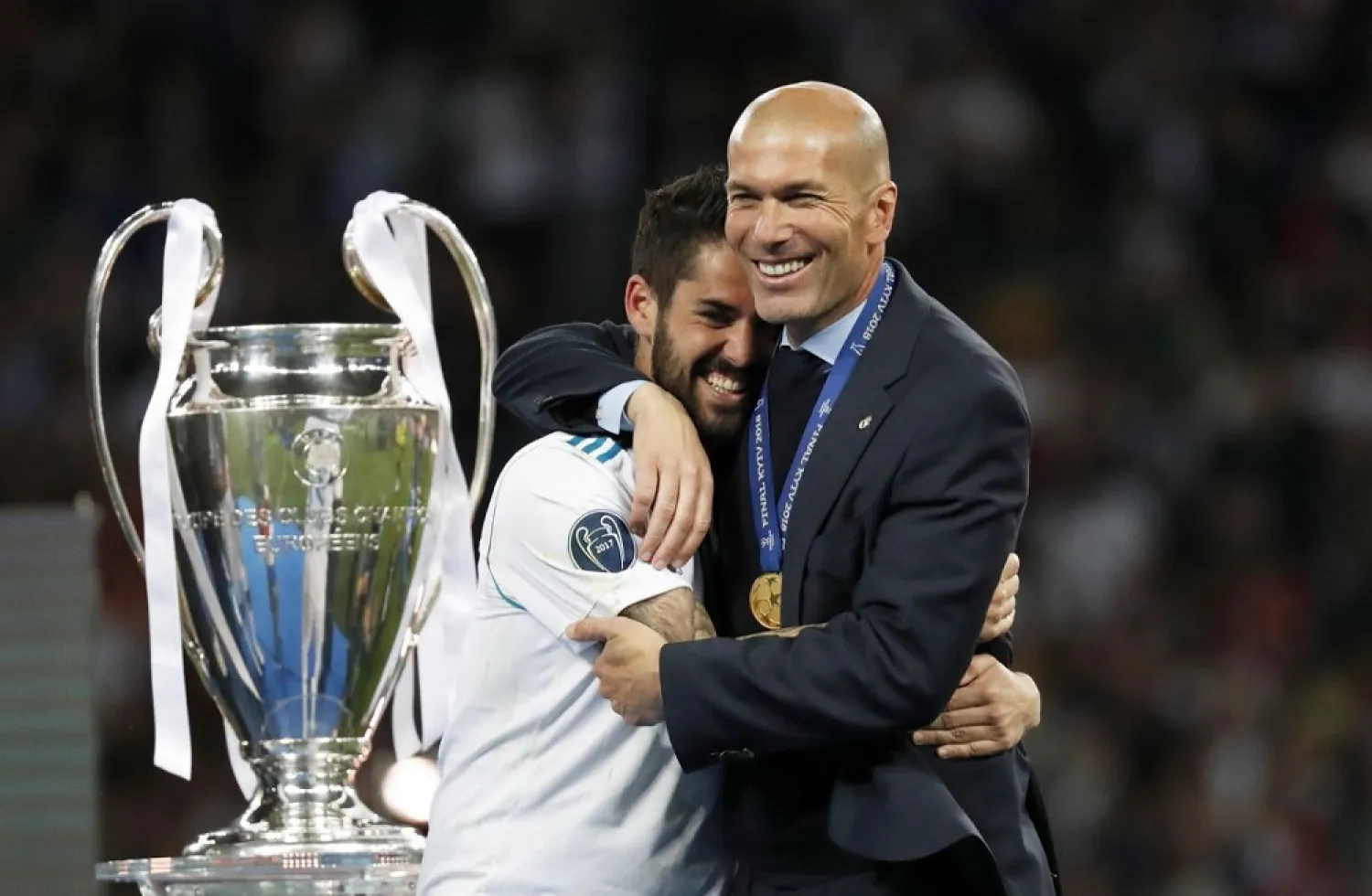When Zinedine Zidane called time on his highly productive stint as the head of Real Madrid’s ego management department, it was interesting to reflect that this week marked the 20th anniversary of the sacking of Jupp Heynckes, eight days after he had steered the club to its seventh European Cup.
The celebrations had barely finished when Lorenzo Sanz, Real’s president at the time, observed that “this would have been one of the worst seasons in recent years” if Heynckes had not ended his debut campaign by beating Juventus in the Champions League final. The German’s crime was to finish fourth in La Liga, which passes for a crisis at the Bernabéu, and he would not be the last manager to suffer from Madrid’s ruthless self-regard.
Some illustrious names have fallen by the wayside. Vicente del Bosque was fired after delivering two Champions Leagues in four seasons, Carlo Ancelotti went a year after ending the quest for La Decima and Fabio Capello lasted only 11 days after winning La Liga in 2007. Perhaps that history has informed Zidane’s thinking.
“It’s not me,” Zidane might as well have said as he spoke about his break-up with Real. “It’s them.” This was a departure from the normal script. Not many coaches get to leave the Bernabéu on their own terms. Many dream of working there. Yet it is difficult to argue with Zidane’s decision to punch first, bearing in mind how suffocating the top of Spanish football has become. There is a precedent, after all, given that it is now six years since Pep Guardiola decided that four seasons as Barcelona’s manager had done quite enough damage to his hairline. “I’m drained,” he said after resigning. “I need to fill up.”
That was no one-off. Luis Enrique, who managed Barcelona between 2014 and 2017, also found the pressure too much to bear. He won the treble in his first season but doubts bubbled away and the criticism had risen to an intolerable pitch by the time he announced he needed a rest in March 2017.
Ernesto Valverde has won La Liga and the Copa Del Rey since replacing Enrique but not everyone is satisfied. There have been complaints about his caution and, having capitulated to Roma in their Champions League quarter-final, Barcelona’s hopes of becoming the first Spanish side to complete an unbeaten league campaign in 86 years went up in smoke when they lost their penultimate game of the season against Levante.
The problem for Enrique, Guardiola and Zidane is that keeping people happy has become a thankless task. That is true of a lot of big clubs, especially in the Premier League, but nowhere is it more pronounced than at Barcelona and Real, both of whom have dominated to such an extent at home and abroad that the lines between success and failure have become blurred. When you have been in eight consecutive Champions League semi-finals, as Real have, it is hard to feel satisfied. The contrast with their opponents in the Champions League final was telling: Liverpool were devastated by defeat but happy to have taken part.
It is unlikely Jürgen Klopp would be given time to build at Barcelona or Real. There is no room for a dip, making it impossible for managers to keep meeting stratospheric expectations. But sympathy is in short supply because they enjoy so many advantages over their rivals. Achievements become distorted and difficult to judge.
Guardiola replaced Heynckes at Bayern and looks ready for a long-term project at Manchester City, but critics point out he has not won the Champions League since leaving the Camp Nou. Enrique’s critics argue he had an attack of Messi, Neymar and Luis Suárez and that it would be more of a risk for Chelsea to appoint him than Maurizio Sarri, whose work at Napoli makes him seem a more progressive and imaginative option.
As for Zidane, the debate rages about whether he is a good manager or simply someone who was in the right place at the right time when Madrid fired Rafael Benítez in 2015. He has won three consecutive Champions League titles and has often made excellent substitutions in big matches. Yet he has Cristiano Ronaldo and it is easier to make tactical tweaks when Gareth Bale can come off the bench to score an overhead kick.
The only way for Zidane to silence the skeptics is for him to flourish in less favorable conditions. But, like Enrique and Guardiola, it is not difficult to appreciate why he wants a fresh start, away from an environment in which winning has managed to become essential and meaningless at the same time. That can make everything feel rather joyless and explains why the man who is tired with life at the top in Spain is simply, well, tired.
The Guardian Sport









